Your child is now a preschooler, who is fascinated by the world around them. They can speak in longer sentences and will start asking lots of ‘who’, ‘what’, ‘where’ and ‘why’ questions as they try to understand more about the world. They enjoy playing with other kids, learning rules and taking turns. And you’ll see them start to form real friendships as they begin to develop their social skills.
The following information has been sourced from the Early Years Learning Framework Developmental Milestones booklet, developed by Community Child Care Co-operative Ltd NSW (CCCC) for the Department of Education.
How can you encourage your child’s learning?
Encourage them to play outdoors
Open them up to more experiences by taking them to different places e.g. wildlife park, museum, playgroup, aquarium, library
Be creative in setting up play activities e.g. painting, music, arts and craft
Build their self-esteem by involving them in your everyday activities and giving them simple helping tasks e.g. help setting the table for dinner
Be interested in their questions and take the time to reply
Show enjoyment in their success e.g. when they read a word correctly
What are some of the different developmental milestones you can observe?
Physical
dresses and undresses with little help
hops, jumps and runs with ease
climbs steps with alternating feet
gallops and skips by leading with one foot
transfers weight forward to throw ball
attempts to catch ball with hands
climbs playground equipment with increasing agility
holds crayon/pencil etc. between thumb and first two fingers
exhibits hand preference
imitates a variety of shapes when drawing, e.g. circles
independently cuts paper with scissors
can use the toilet themselves
feeds self with minimum spills
walks and runs more smoothly
enjoys learning simple rhythm and movement routines
develops ability to toilet train at night
Social
- enjoys playing with other children
- may have a particular friend
- shares, smiles and cooperates with peers
- jointly manipulates objects with one or two other peers
- developing independence and social skills they use for learning and getting on with others at pre school and school
Emotional
- understands when someone is hurt and comforts them
- attains gender stability (sure she/he is a girl/boy)
- may show stronger preference for same-sex playmates
- may enforce gender-role norms with peers
- may show bouts of aggression with peers
- likes to give and receive affection from parents
- may praise themselves and be boastful
Cognitive
- understands opposites (e.g. big/little) and positional words (middle, end)
- uses objects and materials to build or construct things, e.g. block tower, puzzle, clay, sand and water
- builds tower eight to 10 blocks
- answers simple questions
counts five to 10 things
has a longer attention span - talks to self during play – to help guide what he/she does
- follows simple instructions
- follows simple rules and enjoys helping others
- may write some numbers and letters
- engages in dramatic play, taking on pretend character roles
- recalls events correctly
- counts by rote, having memorised numbers
- touches objects to count – starting to understand relationship between numbers and objects
- can recount a recent story
- copies letters and may write some unprompted
- can match and name some colours
Language
- speaks in sentences and uses many different words
- answers simple questions
- asks many questions
- tells stories
- talks constantly
- enjoys talking and may like to experiment with new words
- uses adult forms of speech
- takes part in conversations
- enjoys jokes, rhymes and stories
- will assert self with words
Please seek advice from your local community health service provider or doctor if your child:
is not understood by others
has speech fluency problems or stammers
is not playing with other children
is not able to have a conversation
is not able to go to the toilet or wash him/herself





